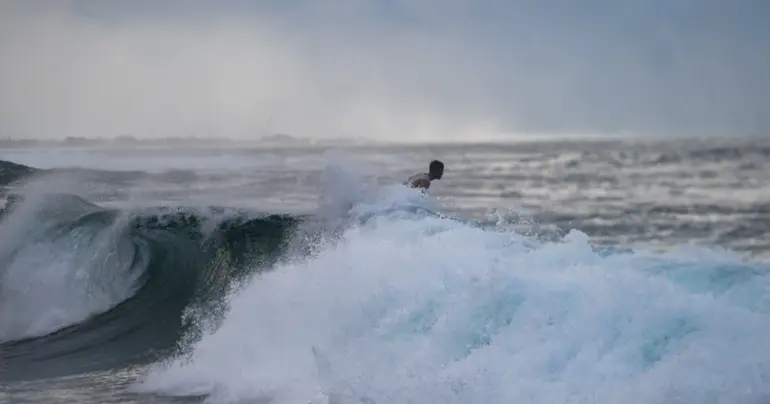Blue Economy and gender equality on the radar
 By Sialai Sarafina Sanerivi
•
19 October 2023, 8:45PM
By Sialai Sarafina Sanerivi
•
19 October 2023, 8:45PM
Discussing ways to develop and implement gender equality platforms towards a Blue Economy was the mantra behind a policy dialogue held at the National University of Samoa.
The dialogue on Thursday was co-hosted by the UNDP and the NUS and aimed to provide a platform for the exchange of experiences on leveraging sustainable Blue Economy strategies for gender equality.
NUS Vice Chancellor, Professor Tuifuisa’a Patila Amosa highlighted the importance of having such discussions and acknowledged the commitment of the UN agency in initiating programmes to enhance the knowledge of the local communities on how they can contribute to the national actions to achieve a Blue Economy.
She then acknowledged the UNDP Regional Director and Assistant Secretary General, Kanni Wignaraja attending the event and for efforts in advocating for gender equality and environmental protection.
“Ms. Wignaraja's leadership has contributed to the development of positive change throughout the region,” Prof. Tuifuisa’a said. “Her contributions are very appreciated and we are honoured that she is with us today.”
The Blue Economy refers to a wide range of economic activities in the Pacific including fisheries and aquaculture, marine protected areas, ports and shipping, coastal infrastructure development, renewable energy, and marine tourism, among others.
Prof. Tuifuisa’a added that for the 2050 Strategy for the Blue Pacific Continent, there needs to be a shift in mindset that places an emphasis on the importance of ocean resources to the island nations' wellbeing.
"By promoting gender equality in the blue economy, we can empower women to participate, supporting a sustainable and balanced blue Pacific," she said.
Ms. Wignaraja said the Blue Economy offers a wealth of opportunities for furthering gender equality and as an example made reference to the recognising of women's traditional role in maintaining a "harmonious relationship" with the ocean.
"For instance, the sustainable culture and harvesting of coastal reef marine resources and by supporting youth and women employment and entrepreneurship skills development, to make the most of the economic and livelihood potential while preserving and restoring ocean health."
According to Prof. Tuifuisa’a, through the promotion of gender equality in the Blue Economy, women can be empowered to participate in and support a sustainable and balanced region.
The policy dialogue also provides an opportunity to draw on the experience of stakeholders that engage in blue economy activities across Samoa and the region to identify best practices, gaps, challenges, opportunities and lessons learned in engaging women and girls and striving towards gender equality in the blue realm in the Pacific.
An agreement between the NUS and the UNDP was also signed at the completion of the policy dialogue which provides a framework of cooperation and facilitates and strengthens collaboration between the two organisations for deepening policy advocacy. This would be achieved through collaboration with the university to enhance public discourse on topical issues and impact the development agenda of the country through policy dialogues, ensuring no one is left behind and there's equity and fairness.
UNDP Senior Technical Advisor Francois Martel provided visual presentations on the capitalising of the Blue Economy for inclusive development as well as farming and harvesting sea Grapes (limu) in Samoa.
The policy dialogue had four panellists who shared their experiences and recommendations on strategies that can be improved or initiated. The students and teachers who were also present were given the opportunity to ask questions and share their thoughts on the policy and ways to improve the approaches already in place.
 By Sialai Sarafina Sanerivi
•
19 October 2023, 8:45PM
By Sialai Sarafina Sanerivi
•
19 October 2023, 8:45PM











